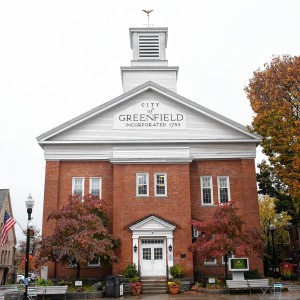Connecting the Dots: Who will own the Earth?

John Bos
| Published: 05-31-2024 2:50 PM |
Recent columns in this newspaper about the Quabbin Reservoir got me to reading Marjorie Kelly’s book “Wealth Supremacy.” Kelly is a distinguished senior fellow at the Democracy Collaborative, a national research and development lab for a democratic economy.
She writes “In the unfolding story of water, we can begin to see the architecture of economic system design. In one system, serving life is at the center. In the other, maximizing financial wealth is at the center.”
Kelly asserts that which path we take “will be a matter of which economic system dominates: extractive capitalism, manifest in models like hedge funds and multinational corporations; or a democratic economy where ownership and control is rooted in community (city-controlled water, worker-owned farms, depositor-owned credit unions, state-owned banks) which recognize our inescapable interdependence with one another.” She is making the case for the need for democratic accountability, for building economic pathways to achieve that “more perfect union” of a fully democratic society.
Kelly says that we are confronting the question of “who will own the earth, who will own and control ‘ecosystem services’” She describes how, in 2021, the New York Stock Exchange created a new investment vehicle entitled Natural Asset Companies (NAC’s), a new asset class to capture and convert the “productive values” of natural assets like forests, water, coral reefs and farms into investor returns. The NYSE website stated that “natural assets produce an estimated $125 trillion annually in global ecosystem services, such as carbon sequestration, biodiversity and clean water.” For context, Kelly asks her readers to “consider that the total value of the U.S. stock market is $46 trillion. That means,” she wrote, “so-called ecosystem services — the natural world, life — is ‘worth’ almost three times as much.”
Finance industry web sites like Kiplinger Personal Finance jumped on board by advising “If natural asset companies are scalable and earn the confidence of investors and stakeholders, they could help ramp up investments in climate solutions. Investors interested should keep an eye out for natural asset companies in the next few months. You might just be able to help keep a forest standing as you feather your nest.”
Feather your nest? Earning the “confidence of investors” has a simple bottom line; profit before everything else.
I was dumbstruck, but somehow not surprised, by Wall Street’s descent into eviscerating the environment for profit over people. So, I went to the web to verify Kelly’s disheartening information. I was relieved to find a Reuters news agency report on Jan. 17 that the NYSE “has withdrawn from the Securities and Exchange Commission a proposal to create a new tradable assets class called ‘natural asset companies,’ or NACs.”
That’s the good news. The bad news is that the decreasing amount of fresh water worldwide has created yet one more assault on people’s ability to survive the decreasing availability of life-essential water for drinking, sanitation and hygiene. Globally, 1.1 billion people lack access to clean freshwater putting their health and lives at risk from water-borne diseases like cholera, typhoid fever, and diarrheal illnesses which kill millions annually, especially children.
Article continues after...
Yesterday's Most Read Articles
The investment “community” has targeted the growing scarcity of water as the “new oil.” Major sectors of the finance industry are aggressively buying up water rights in the U.S. and worldwide. Several major investment banks and Wall Street-affiliated firms have been acquiring water rights and land with attached water rights across the western United States. Large institutional investors like private equity firms, pension funds, and endowments have also been investing in water rights. Harvard University’s endowment fund, the largest academic endowment in the world of $50.7 billion in 2023 derives some of that value from the purchase of vineyards and associated water rights in California. A 2018 deal showed the tremendous speculative value of land/water deals. Bill Gates’ 100C paid $171 million for 14,500 acres of land (10,500 acres of it irrigated farmland) in the Columbia River Basin from the Boston-based John Hancock Life Insurance Company, which had paid $75 million for the parcel in 2010.
According to water laws in most western states, water can’t be “owned,” although “the right to use that water” can be sold, bought and transferred.
“Different conceptions of rights are at work,” says Kelly, “the rights of corporations and investors to be free of democratic oversight in a ‘free market,’ or the human right to be free of unnecessary suffering as with the right to access to clean water.”
What economic system do we want? One system reveres wealth. The other reveres life on Earth.
John Bos writes ever more despairingly about the odds of mitigating, much less reducing, the fast-approaching inability of our environment to support life as we have known it. “Connecting the Dots” if published every other Saturday in the Recorder. Questions and comments are invited at john01370@gmail.com.






 Connecting the Dots: It comes to us all
Connecting the Dots: It comes to us all Ira Helfand: A bomb survivors warn of nuclear danger
Ira Helfand: A bomb survivors warn of nuclear danger Michelle Spaziani: High municipal employee turnover merits immediate review
Michelle Spaziani: High municipal employee turnover merits immediate review My Turn: Massachusetts’ health system is failing
My Turn: Massachusetts’ health system is failing
